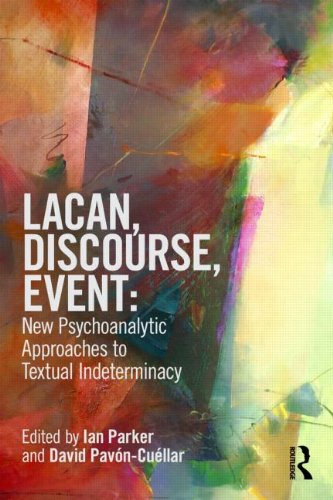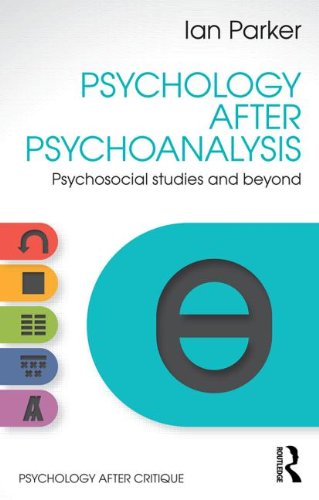Psychoanalytic Practice and State Regulation
Attempts by the State to regulate our practice are proceeding apace, and the Health Professions Council is intent on bringing psychotherapists and counsellors in Britain under its jurisdiction within two, three, or perhaps four years. Ambiguity and uncertainty about the timescale give us some room for manoeuvre, and it is vital that we do not already take this to be a done deal. Crucial questions are yet to be seriously addressed and considered. Will the current rush to State regulation result in better protection of the public, or in the destruction of the NHS, shackling of the universities, subjection of professionals to regulative procedures and an increase in suffering? What political agenda is at the heart of the State's push to regulate? If regulation is a desirable move forward, who should regulate, why, and how? What might be the clinical consequences of State regulation, and of psychoanalytic practice being regulated as a 'health profession'? And who should be the 'experts' that decide its destiny?
From psychoanalysis to medicine, to law, to nursing, and to education - right into our private lives - the State is seeking to submit all professional activities to its jurisdiction. Doctors, nurses, educators, psychoanalysts, chaplains, counsellors, psychotherapists, psychologists, psychiatrists and lawyers are told by public servants - State servants who know little or nothing about our work - what we must know, what kind of knowledge and skills we should possess and transmit, and how we should apply these in the course of our work. Should all of these professions be regulated, or only some, or none? Already, there is a proliferation of agents of the State on the job, determined to see that this work is applied to psychoanalytic work regardless of deleterious effects on therapeutic training and practice. Backed by carefully selected 'professional experts' and, in the NHS, self-interested or short-sighted union representatives, an array of State organisations - the Health Profession Councils, Skills for Health, Agenda for Change, Knowledge and Skills Framework, the Department of Innovation, Education and Skills - are reducing the complexities of human and professional life to a simple set of quantifiable and measurable elements. The quicker the job is done, the less opportunity there is for sound thinking, and the urgency imposed on those banal processes marks all the recent manoeuvres the State likes to call 'consultation'. This is the unthinking anti-therapeutic mess in which far too many practitioners and organisations have willingly become mired.
The State operating at the behest of market forces does not see attending to human suffering as its business. On the contrary, its fundamental aims are the stimulation of the market, budget control, the management of 'human resources', and social adaptation. This kind of State is hostile to genuine scientific inquiry. It knows nothing and wishes to know nothing about inconclusive and unquantifiable elements such as the unconscious, transference, the unheimlich, the unknown, love, desire. Its pursuit of quick, cheap and controllable outcomes demands only the kind of knowledge that best serves the mechanics of bureaucracy. Its methodology and aims are antithetical to the psychoanalytic project, and this raises a crucial question for us: could psychoanalytic practice accommodate the bureaucrat's needs and still maintain its own specific ethics?
There are those in existing registration bodies keen for the ear of power willing to conform to these bureaucratic demands, avidly pursuing legitimation for their work through empirical psychological studies of child development, functional magnetic resonance imaging technology and randomised controlled trials. The hope is that this research will satisfy the thirst of government regulators and 'scientific' psychologists for 'evidence'. Some even hope to reassure evaluators that some form of psychoanalytic work might be compatible with the project 'Improving Access to Psychological Therapies', inspired by the Layard Report, which lavished praise on (a cheap, quick version of) cognitive behavioural therapy. In each of the registration bodies and in every psychotherapy training organisation, however, there is discontent, a growing refusal to play along with the regulation agenda. And here we have much to learn from the experiences of psychoanalytic practitioners from a range of different traditions, and from around the world.
Psychoanalytic Practice and State Regulation brings together contributions from an international conference in London organised by the College of Psychoanalysts-UK. This was an important meeting of psychoanalysts and psychotherapists to debate a political scenario which presents serious worldwide challenges not only for psychoanalytic practice but for many other practices as they come under increased pressure to submit to State surveillance. The book includes contributions from around the globe. We learn from Italy, for example, that the restriction on training to medics or psychologists has had an insidious corrosive influence on psychoanalytic work. From France and Belgium we have contrasting reports on the attempts by psychoanalysts to ally with psychotherapists and psychologists to defend space to practice, and from Japan and Morocco we have detailed accounts of the way psychoanalysis still operates today outside the orbit of the State.
Psychoanalytic practitioners with diverse backgrounds, from psychology, psychiatry and education, as well as philosophers and psychotherapists from the humanistic tradition present perspectives on State regulation. They reflect on the historical background to this question, the alliances and divisions that have dominated the politics of psychoanalysis, and the way in which these have shaped and continue to shape the current forces at play. The book presents questions, reflections and arguments that are crucial not only for psychoanalysis, but also for psychotherapy, for counselling and for a range of other practices and professions that will be equally compromised by State regulation. And it puts into perspective the activities of those here who believe that it will be a harmless or even beneficial process. The book concludes with detailed proposals for alternatives to regulation from Brazil and from the Independent Practitioners Network, and the final contribution sums up what kinds of mental hygiene agenda we will be in for if we do not speak out now.
From psychoanalysis to medicine, to law, to nursing, and to education - right into our private lives - the State is seeking to submit all professional activities to its jurisdiction. Doctors, nurses, educators, psychoanalysts, chaplains, counsellors, psychotherapists, psychologists, psychiatrists and lawyers are told by public servants - State servants who know little or nothing about our work - what we must know, what kind of knowledge and skills we should possess and transmit, and how we should apply these in the course of our work. Should all of these professions be regulated, or only some, or none? Already, there is a proliferation of agents of the State on the job, determined to see that this work is applied to psychoanalytic work regardless of deleterious effects on therapeutic training and practice. Backed by carefully selected 'professional experts' and, in the NHS, self-interested or short-sighted union representatives, an array of State organisations - the Health Profession Councils, Skills for Health, Agenda for Change, Knowledge and Skills Framework, the Department of Innovation, Education and Skills - are reducing the complexities of human and professional life to a simple set of quantifiable and measurable elements. The quicker the job is done, the less opportunity there is for sound thinking, and the urgency imposed on those banal processes marks all the recent manoeuvres the State likes to call 'consultation'. This is the unthinking anti-therapeutic mess in which far too many practitioners and organisations have willingly become mired.
The State operating at the behest of market forces does not see attending to human suffering as its business. On the contrary, its fundamental aims are the stimulation of the market, budget control, the management of 'human resources', and social adaptation. This kind of State is hostile to genuine scientific inquiry. It knows nothing and wishes to know nothing about inconclusive and unquantifiable elements such as the unconscious, transference, the unheimlich, the unknown, love, desire. Its pursuit of quick, cheap and controllable outcomes demands only the kind of knowledge that best serves the mechanics of bureaucracy. Its methodology and aims are antithetical to the psychoanalytic project, and this raises a crucial question for us: could psychoanalytic practice accommodate the bureaucrat's needs and still maintain its own specific ethics?
There are those in existing registration bodies keen for the ear of power willing to conform to these bureaucratic demands, avidly pursuing legitimation for their work through empirical psychological studies of child development, functional magnetic resonance imaging technology and randomised controlled trials. The hope is that this research will satisfy the thirst of government regulators and 'scientific' psychologists for 'evidence'. Some even hope to reassure evaluators that some form of psychoanalytic work might be compatible with the project 'Improving Access to Psychological Therapies', inspired by the Layard Report, which lavished praise on (a cheap, quick version of) cognitive behavioural therapy. In each of the registration bodies and in every psychotherapy training organisation, however, there is discontent, a growing refusal to play along with the regulation agenda. And here we have much to learn from the experiences of psychoanalytic practitioners from a range of different traditions, and from around the world.
Psychoanalytic Practice and State Regulation brings together contributions from an international conference in London organised by the College of Psychoanalysts-UK. This was an important meeting of psychoanalysts and psychotherapists to debate a political scenario which presents serious worldwide challenges not only for psychoanalytic practice but for many other practices as they come under increased pressure to submit to State surveillance. The book includes contributions from around the globe. We learn from Italy, for example, that the restriction on training to medics or psychologists has had an insidious corrosive influence on psychoanalytic work. From France and Belgium we have contrasting reports on the attempts by psychoanalysts to ally with psychotherapists and psychologists to defend space to practice, and from Japan and Morocco we have detailed accounts of the way psychoanalysis still operates today outside the orbit of the State.
Psychoanalytic practitioners with diverse backgrounds, from psychology, psychiatry and education, as well as philosophers and psychotherapists from the humanistic tradition present perspectives on State regulation. They reflect on the historical background to this question, the alliances and divisions that have dominated the politics of psychoanalysis, and the way in which these have shaped and continue to shape the current forces at play. The book presents questions, reflections and arguments that are crucial not only for psychoanalysis, but also for psychotherapy, for counselling and for a range of other practices and professions that will be equally compromised by State regulation. And it puts into perspective the activities of those here who believe that it will be a harmless or even beneficial process. The book concludes with detailed proposals for alternatives to regulation from Brazil and from the Independent Practitioners Network, and the final contribution sums up what kinds of mental hygiene agenda we will be in for if we do not speak out now.
By Ian Parker
View more details for Ian Parker
Deconstructing Psychotherapy
- Paperback
Deconstructing Psychopathology
- Paperback
Critical Discursive Psychology
- Hardback












